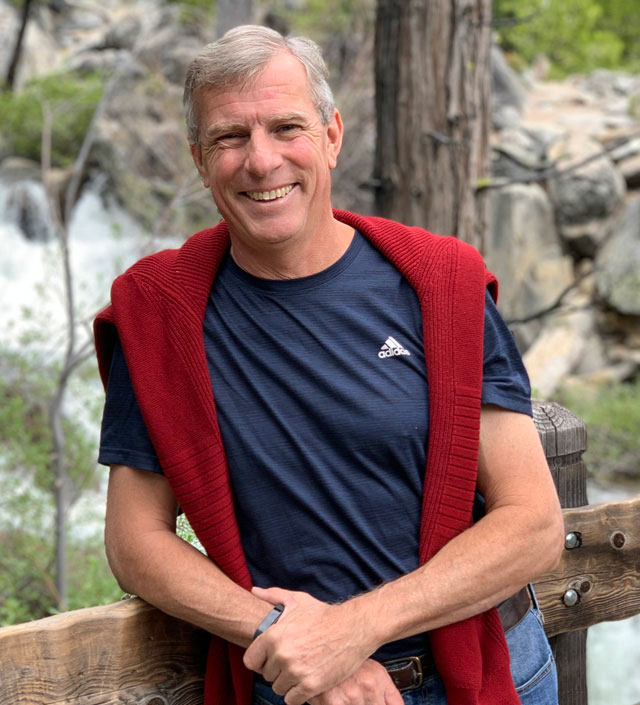The good news is improvements in healthcare are coming from innovations in digital technology, and the elderly will gain greater acceptance as valued contributors to society.
That was the consensus of experts from education, medicine and financial services who were part of a panel on longevity.
“There is this misconception and we have this narrative that old people, as they age, are a burden on society. We need to change this narrative! They are not a burden, they are a big asset. We have to figure out how to leverage their wisdom and experience,’’ said Ilana Horwitz, a sociologist of education and religion and Fields-Rayant Chair in Contemporary Jewish Life at Tulane University.
“The narrative says that aging leads to cognitive decline; again, not true! There are developmental changes in the brain, and as people age, it’s easier for them to learn skills, because they are not empty vessels,” said Horwitz. “Knowledge sticks in our brains as it relates to something we have experienced.”
“For instance, with finances, they have already played around with checkbooks and spent money so it’s easier for them to understand how banking works than somebody who is 10, 20 or 25,’’ she said.
Bullish on Aging
Alan Patricof — a venture capitalist, founder of Patricof & Co. Ventures (a predecessor to Apax Partners), chairman emeritus of Greycroft, and chairperson and co-founder of Primetime Partners — is bullish on an aging population’s future role in society.
At 88, he said he plans to live until 114.
Ken Stern, moderator for the “Innovation in the Age of Longevity” session at the Brite ’22 Conference, organized by Columbia Business School’s Center on Global Brand Leadership, asked Patricof how he decided on 114.
“Because I heard a lecture some years ago from a head of gerontology who said we could and should live to be 114. The only reason that we don’t is that on the way there, we got cancer, or tuberculosis, or were run over by a car or had a hip replacement, and each one took six months off our lifespan,” Patricof replied.
“I have had a few of those maladies, but I liked the idea of 114. So I set that goal 10 years ago, and everyone who knows me, says I am going to get there,” he said. “I’m planning to run the Marathon in November. The last time I did it was in the 1980s.’’
Healthcare via Cellphone
Nirav Shah, M.D., chief medical officer of Sharecare, and a senior scholar at Stanford University, said even innovations in cellphones will help more people from more income levels live longer.
“While we don’t have broadband everywhere, most people and most families have a smartphone, which has allowed us to democratize access to healthcare. I’m very optimistic about the rise of telehealth; it is now getting people access to care they didn’t have before. These underserved people are essential workers, or on Medicaid, or uninsured, and now they are starting to have access with something this simple: a cellphone.
“Any smartphone will give you a full set of vital signs with the various apps. Say you’re worried about COVID: You cough into the phone, and it gives you your oxygen level, your blood pressure, your heart rate, and so you know if you should go in for evaluation. Those are the kind of technologies that are available to everyone, which is exciting,’’ Shah said.
Stern, chair of the Longevity Project and co-founder and president of Palisades Media Ventures, asked the participants to talk about the effect of the COVID pandemic on technological advances in education, medicine and finance.
“During the pandemic, we moved to online learning, and a lot of people are changing the way we do education. But I am very skeptical because our educational problems are in society and they can’t really be changed with technological solutions,’’ Horwitz said.
“Ten years ago, it was said that online education initiatives would open up education for all, but it didn’t move the needle. So I’m not too optimistic that remote learning will be the panacea to solve the social and political problems of education,’’ she said.
Shah said the pandemic further accelerated the use of telehealth.
“Telehealth finally took off in the last two years and I think that people don’t want to go back to the old way. We are excited to see venture capital’s investment in it, which will transform healthcare in our lifetime,’’ he said.
“Today the orthopedic surgeon will not get paid by United Healthcare until they get patient-reported outcomes: is the patient able to walk, do things at home. “Only when the patient reports that to insurance, then the orthopedic surgeon gets paid. So more and more outcomes will go through the phone, which capture the data. Data capturing will improve health care and at much lower costs,’’ Shah said.
Unpaid Caregivers
Patricof said the pandemic underscored the extent of unpaid care.
“A huge amount of caregiving that exists in America, $500 billion worth or 2.5% of our GDP, is contributed by unpaid family caregivers. That was pre-COVID; since COVID, it’s probably gone up much more,’’ Patricof said.
“We need to support these caregivers, but we haven’t invested in that the way other countries have. We need the services that will take care of people to age at home, and we need housing types that address their physical need.
“There’s now a toilet seat that has been developed that can do urinalysis! We can use the toilet as a monitor for all kinds of things, which saves going to the doctor or the hospital,’’ Patricof said.
Shah said much more work needs to be done to achieve greater longevity in America.
“I am a little less rosy. Longevity in America has gone down by two years since COVID; we are five years behind our peer countries, the developed countries, and it is getting worse,’’ Shah said.
“Since 2021, we have been going backward and the rest of the world is going forward. We must pay more attention to why longevity happened. It was because of public health and environmental changes: Water was cleaned, we found ways to prevent illness and that got childhood mortality down,’’ Shah said.
Patricof said “in the last couple of years, wellness has become very big’’ as an area of investment.
“There are now five global companies focused on wellness but from a technology standpoint, innovation, honestly, has not been that dramatic yet. There is more remote patient monitoring now because the elderly are aging at home alone. Thirty-five companies are doing RPM — remote patient monitoring — with every type of computer-vision and sensors, it’s just astounding.
“There’s great opportunity in the whole field of longevity and technological innovation and we are just at the beginning stages,’’ Patricof said.
Education and Longevity
Horwitz said there are new demands on education now that people are living longer and seeking more education.
“Where education has to make an impact is around working learners and people who are looking for different certifications later in life. As we live longer, there will be more opportunities and times when people come out of the workplace. The old way was, ‘Okay, you go to school until you’re 20, and then you’d keep working.’ It was much more linear.
“But there is a new map of life because we are living longer: People are coming in and out of the education system more often, getting reskilled. The remote learning innovations that came up during COVID might be more able to accommodate people with those kinds of needs.’’
Even with more education, working-class gains in longevity are stalled because of elitism, Horwitz said. She holds degrees from Emory, Stanford and Columbia.
“It’s not about what you learn, it’s about the degree that you have. If you’re an employer and you have 300 resumes, you quickly weed out those without college, and then go for the more elite institutions.
“I want to see employers thinking differently about how to evaluate credentials. That will make getting jobs much more equitable. The whole story of longevity has only been seen by people with a college degree,” said Horwitz, which is only one-third of Americans. “Two-thirds are not seeing longevity gains, and COVID has profoundly affected that.’’
With longevity, workers will have more and different jobs, Patricof said.
“People like me are having their third start at 85. People will be re-entering the workforce in a new version of what they did last time, or in a completely new activity and getting certification in new areas: The aeronautical engineer becomes a real estate broker and the real estate brokers become professors,’’ he said.
Disparity in Longevity
But disparity and inequality continue to stall significant gains in longevity.
Stern said a report by the Harvard Business School said that 27 million Americans are under- or unemployed largely due to a lack of technology skills.
“There is a profound problem of despair in America. I think it is cognitive, emotional and physical, and I think it really has hindered longevity gains among working-class communities,’’ Horwitz said.
Still, Shah said that “human longevity is one of the great innovations: The lifespan in the 19th century was 39.4 years; by the 1990s, you could almost double that number.’’
In a four-decade career in journalism, Eleanor O’Sullivan has reviewed many books on best practices for financial advisors, has written for Financial Advisor and the USA Today network, and was movie critic for the Asbury Park Press.







